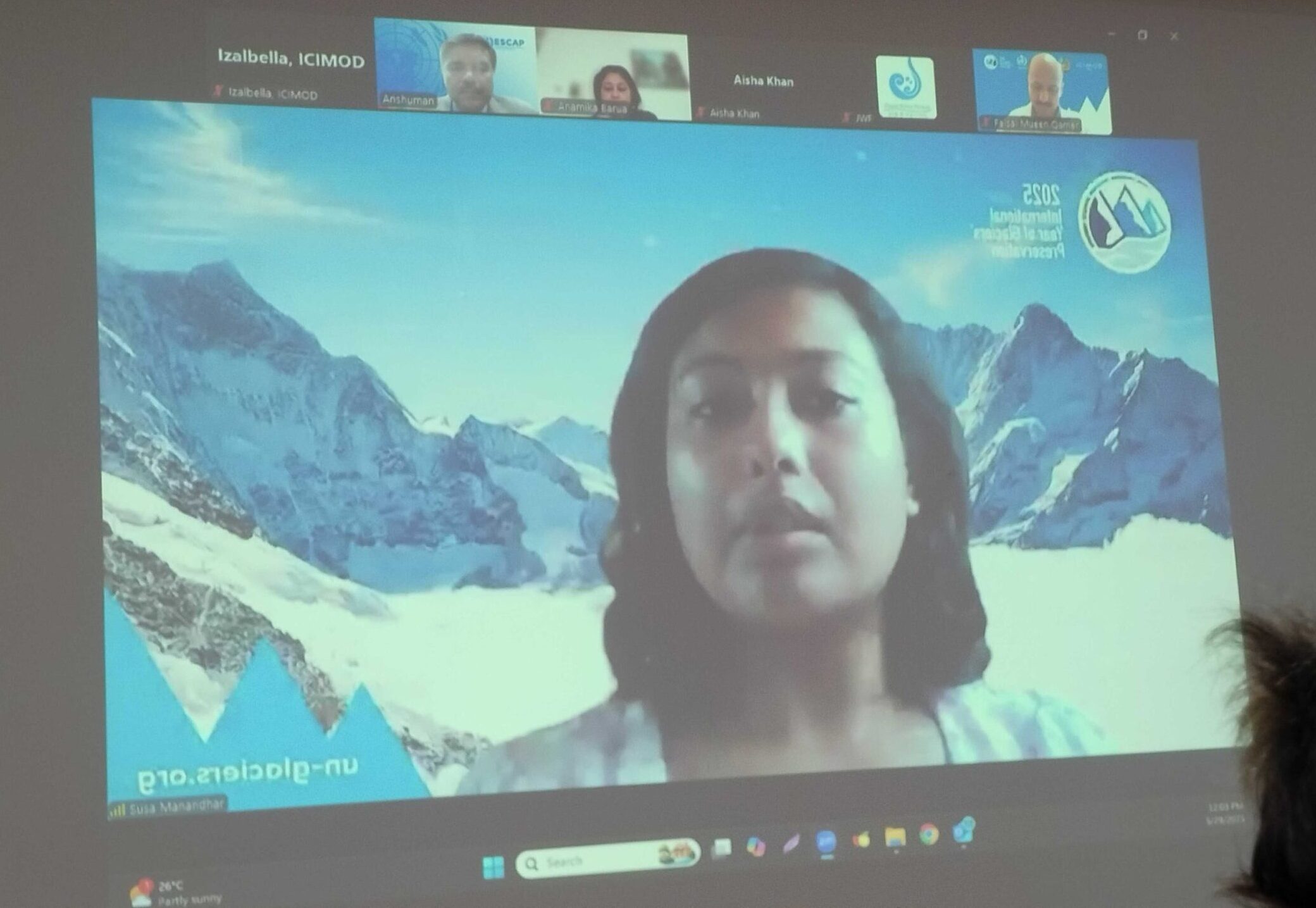Nepal National Water and Weather Week (NNWWW) 2023 was inaugurated on March 17, 2023. With the leadership of the Government of Nepal, Water and Energy Commission Secretariat (WECS), NNWWW, a week-long program is being organized every year to celebrate World Water Day and World Meteorological Day. The Small Earth Nepal (SEN) has been serving as the secretariat for the NNWWW since 2009. The theme for this year’s World Water Day 2023 is “Accelerating Change” and the theme for the World Meteorological Day 2023 is “The Future of Weather, Climate, and Water across Generations.” NNWWW inauguration program was Chaired by Mr. Sushil Chandra Tiwari, Secretary, WECS and Mr. Kewal Prasad Bhandari, Member Secretary, National Planning Commission was the Chief guest. More than 50 individuals from government officials, representatives from I/NGOs, academic institutions, entrepreneurs, and journalists participated in the event.
Mr. Kalanidhi Poudyal, Joint Secretary, WECS welcomed participants and highlighted the importance of water in every sector and its proper utilization to be a major concern today to ensure a sustainable future. Mr. Bhawani Dongol, Executive Director, SEN in his remarks highlighted the significance of the collaborations amongst various organizations in managing water resources in the face of changing climate and increased disaster risks. Ms. Tripti Rai, Country Director, Water Aid Nepal, briefed about Nepal’s progress in achieving SDG-6 for Clean water and sanitation by 2030, emphasizing the government’s responsibility to prioritize this sector for a resilient society. Dr. Manohara Khadka, Country Representative, International Water Management Institute (IWMI), discussed the concept of a “Transformative future for Water Security” and its role in addressing climate change risks. This approach emphasizes the need for innovative water management strategies to enhance resilience against climate-related challenges. Dr. Arun Bhakta Shrestha, Strategic Group Lead-Reducing Climate and Environmental Risks at ICIMOD shared a message on behalf of Dr. Pema Gyamtsho, the Director General of ICIMOD highlighting the importance of water in the Hindu Kush Himalaya (HKH) region, which is vital for the sustenance of ecosystems, livelihoods, and socioeconomic development in the region.
Chief guest Mr. Bhandari underscored the current water crisis and the necessity of conserving water to mitigate the impacts of climate change. By emphasizing the importance of water conservation, he stressed the need for immediate action from the government and individual levels to address water scarcity and adapt to climate-related challenges. Chair of the program, Mr. Tiwari in his closing remarks, highlighted the water resource potential of the country, ongoing development and issues, and the need for its holistic management.



Following the inauguration session, Knowledge Forum was held for the rest of the day, which engaged multi-stakeholders from the water, energy, food and environmental sectors in discussing and addressing relevant questions related to policy, research and practice-based knowledge sharing and learning on inclusive, climate-resilient, and sustainable water management for accelerating change in Federal Nepal. This Knowledge Forum included two technical sessions: I) Policy research and practice for strengthening inclusive climate resilient water resources management in Federal Nepal, moderated by Dr. Santosh Nepal, IWMI and II) Water technologies and innovation: Solar irrigation as a tool for responding to food and water insecurities, and inclusive development, moderated by Mr. Shisher Shrestha, IWMI. These technical sessions highlighted the importance of a multi-stakeholder and nexus approach to mobilize water resources, especially amongst marginalized and vulnerable social groups such as women, youth, and disabled people.
The final session was a high-level panel discussion moderated by Dr. Santosh Nepal, IWMI, on identifying the priorities to enhance water security in a changing climate. This highly informative session discussed policies and social barriers including integrating the needs of farmers, and vulnerable and marginalized social groups, setting the context for the future of water resource management, and steps necessary to be actioned to ensure water security for future generations. It was agreed by all panelists and audience members that youth involvement in water resource discourse is integral.







